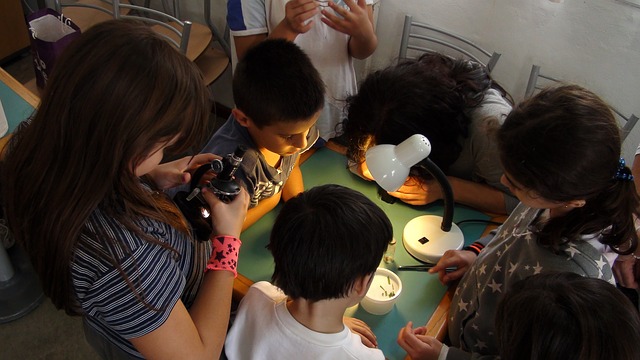The Sarawak Science Centre which is to be completed by 2024 aims in providing rich learning environment to create interest, awareness and enthusiasm in science for students, teachers and community.
This is imperative because by promote a lifelong interest of science among students will ensure a scientific and progressive society.
In doing so, one of the ways is to promote the development of scientific thinking among young children.
According to an article ‘Promoting the Development of Scientific Thinking’ by Ruth Wilson, the author cited that young children are naturally curious and passionate about learning.
Their attitudes which include poking, pulling, tasting, pounding, shaking, and experimenting indicate that they engage in scientific thinking and actions long before they enter a classroom.

From her article, here are some suggestions for fostering scientific learning in the early childhood classroom.
Science as Active Exploration
Young children should learn science and other subjects through active involvement instead of learning scientific facts presented by others.
Children should be engaged both physically and mentally in investigating and manipulating elements in their environment
Through this, young children should involve asking questions, probing for answers, conducting investigations, and collecting data.
Instead of viewing science as memorization of facts, it should become a way of thinking and trying to understand the world.
According to the author, this would then allow children to become engaged in the investigative nature of science and to experience the joy of having wonderful ideas.
Discovery Learning
Developing own ideas added depth to learning.
For this, knowing the right answer is not the primary objectives of science in early childhood curriculum as this requires no decisions, carries no risks, and makes no demands.
Through discovering, the objective is to help children realize that answers about the world can be discovered through their own investigations.
This would prompt children to come up with ideas of one’s own as it involves a number of science-related activities and skills such as investigating, experimenting and invokes curiosity.
Science goals
In the article, it is mentioned that the desired goals of science in the early childhood curriculum includes content, processes, and attitudes or dispositions.
Content refers to the body of knowledge and will increase over time and their desire to communicate and represent their knowledge should be acknowledged and supported.
The processes include activities such as predicting, observing, classifying, hypothesizing, experimenting, and communicating.
In nurturing this, parents or adults should be supportive of their children when applying these skills in any activities.
Attitudes or dispositions include curiosity, a drive to experiment, and a desire to challenge theories and to share new ideas. These attitudes should be valued and nurtured.
Science in the Early Childhood Classroom
Science subject is often neglected in early childhood education as it is viewed as too difficult or formal.
However, teachers should provide a supportive environment for young children to build their interest in science.
Among the elements for a supportive environment includes a variety of interesting materials for children to explore and manipulate, unstructured time for children to develop and test their own ideas, and a social climate that tells the children that questions and experimentation are as valuable as knowing the right answers.
Teachers may also pose productive questions to help children construct their own understandings as children often find it difficult to make connections necessary to arrive at a desired understanding.
Among the productive questions may include ‘what if’, ‘why do you think’, ‘can you explain that’, how different’ and ‘what is it doing’.
Productive questions will help forward their thinking and help build their own understandings.




